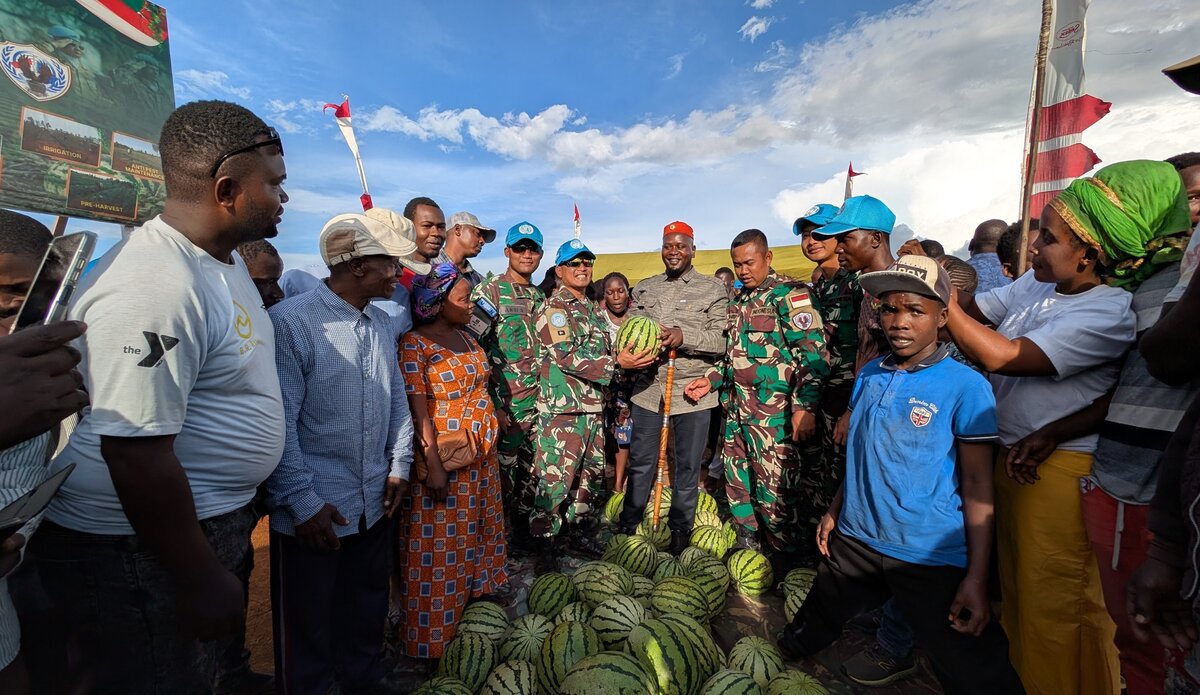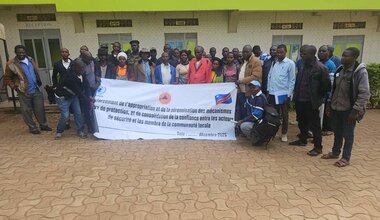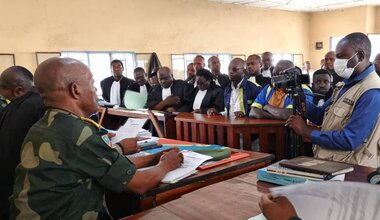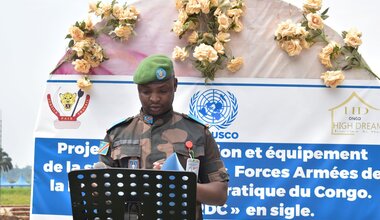Ituri: Peacekeepers Teach Youth Watermelon Farming to Deter Armed Group Recruitment
Young people from Tsere, a locality in Ituri, have harvested over two tons of watermelons as part of an agricultural project launched by Indonesian peacekeepers of MONUSCO. Initiated three months ago, this community-based initiative targets residents from a region affected by insecurity, located about a dozen kilometers from Bunia, the provincial capital.
The goal is to replace weapons with farming tools by promoting a profitable crop that can provide a source of income for youth who often lack financial means.
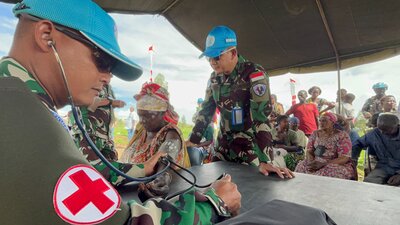
In Bunia, fruits are relatively expensive. A watermelon typically sells for 25,000 Congolese francs, just under 10 US dollars. Most of these fruits come from neighboring Uganda.
The first phase of the project concluded on Wednesday, 14 May 2025. Several hundred residents, including 300 women, actively took part. Jean-Pierre Upar, Youth Advisor of Tsere, praised the initiative's success:
“We are very pleased. We embraced this project with great satisfaction. The people of Tsere are hardworking, and we will make sure to sustain this initiative so that even if the peacekeepers return one day, they find an ongoing project within the community.”
The Vice-Governor of the province, who presided over the closing ceremony, commended MONUSCO’s action, stressing its contribution to peace and youth empowerment by reducing the risk of recruitment by armed groups:
“This is what we want for the province, peace. Agriculture, fishing, and farming, that’s the model to follow” said General Raus Chaluwe.
He also issued a call to youth still involved in armed groups:
“I urge everyone still in the bush to return. The province needs you to move forward. As you can see, with just one hectare, we can produce more than 500 watermelons. I have asked village and group leaders to expand the farmland to two or three hectares so that more women and youth can benefit.”
On this occasion, the peacekeepers also provided free medical consultations to 150 residents, including 85 women. Medication was distributed afterward.
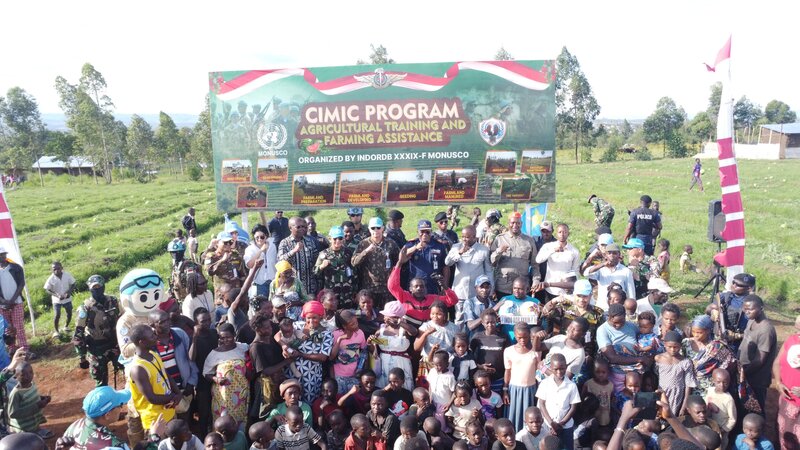
 UN
UN United Nations Peacekeeping
United Nations Peacekeeping
